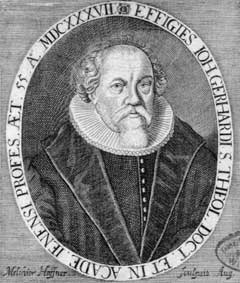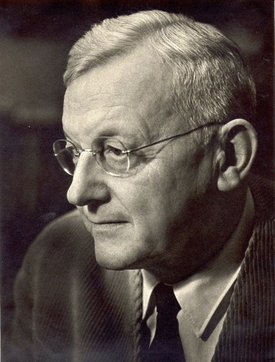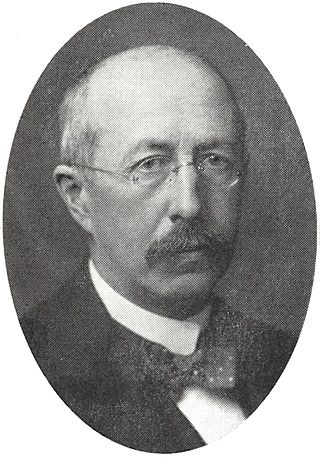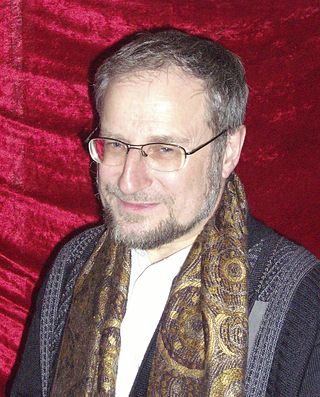
Gerhard J. Bellinger (11 March 1931 - 20 June 2020 [1] ) was a German theologian, university professor of the New Testament, the history of Christianity, and the history of religions at Technical University of Dortmund.

Gerhard J. Bellinger (11 March 1931 - 20 June 2020 [1] ) was a German theologian, university professor of the New Testament, the history of Christianity, and the history of religions at Technical University of Dortmund.
Bellinger was born 1931 in Bochum, Westphalia, Prussia, Germany, and he got an Abitur 1952 from the Collegium Josephinum Bonn. He died on 20 June 2020 in Bonn, North Rhine-Westphalia, Germany. He began his studies of philosophy, theology and history at Paderborn and then at Munich. At the Ludwig Maximilian University of Munich he had been taught by Michael Schmaus (dogmatic Theology), Romano Guardini (philosophy of religion) just as by Helmut Kuhn (American cultural history and philosophy), Hermann Krings (philosophy) and Franz Schnabel (history).
In order to attain the degree in catholic theology, Bellinger continued his studies starting from 1961 at the university of Münster. There he was taught by Joseph Ratzinger / now Pope Benedict XVI. (dogmatic theology and dogma history), Walter Kasper (dogmatic theology), Johann Baptist Metz (fundamental theology) and above all by Theodor Filthaut (practical theology), which referred him to the Roman Catechism as topic of a thesis and became then also his doctor father. At Münster Bellinger 1966 obtained a "Doctor theologiae (Dr. theol.)" degree (Doctor of Theology in English), and 1967 he was nominated as scientific assistant at the educational university in Münster.
In 1970 Bellinger was appointed professor ordinarius for catholic theology and its didactics at the educational university Hagen, and in 1976 he moved to the educational university at Dortmund. From 1977 to 1979, Bellinger became dean for the faculty of catholic and Protestant theology. Since 1980 he teaches catholic theology and its didactics with the emphasis Theology of the New Testament and History of Christianity and History of religions at the Technical University of Dortmund. As teacher of the university he had imparted in his lectures and seminars to the necessary knowledge of instruction religious teachings during three decades generations of studying for the teaching profession in the different school stages. According to his name is designated the Professor Dr. Bellinger Foundation in the trusteeship of the SOS Children's Villages foundation, by which all children and young person in the SOS Kinderdorf support within the range of the education and the training experience. On the occasion of his retirement in 1996, Bellinger received an anniversary publication from his colleagues and friends.
His teaching and research cover a wide field ranging from historical to literary studies. His achievements are finding national and international acknowledgement. Apart from his training activity at the university Bellinger wrote important specialized books, which were translated into thirteen languages.
Within the range of the Theology of the New Testament, which represented the principal part of his topics in lectures and seminars, the "Great Bible Guide" (1985), in whom he cooperated substantially, is translated into three languages: French (1990), Spanish (1991) and Russian (1993). One of his major works is his comprehensive book "Jesus: life – working – fate" (2009), which appears as a summary of his lectures about the theology of the New Testament.
On the area of the History of Christianity his main point of research was the history of the denominational catechisms, whereby he has written in continuation of his thesis the "Bibliography of the Roman Catechism" (1983), and he also has examined the "First Cathecismo Pequeno of Diogo Ortiz de Vilhegas", a manual of catechetic instruction, which appeared in the year 1504 in Lisbon and as first of all has used the word "catechism" as title for this kind of books.
In his point of research History of religions he occupied himself strongly with the religions of mankind and the myths of the peoples. The results of his researches are several times published. His "Great Religions Guide. 670 religions, churches and cults." (1986) is translated into five languages: Italian (1989), Hungarian ((1993), Polish (1999), French ((2000) and Serbian (2004).
Likewise his "Great Encyclopedia of the mythology. 3100 items to the myths of all people" (1989) is often printed and translated into five languages: Danish (1993), Slovenian (1997), Polish (2003), Chinese (2006) and Bulgarian (2008).
A contribution to the Sexualethik of the religions is his comprehensive work "Sexuality in the religions of the world" (1993), which is translated into Czech (1998).
Furthermore, he wrote over 800 reference articles for general reference books and specialized encyclopedias as well as numerous essays in specialized scientific compilations, manuals and magazines.

Johannes Gerhard was a Lutheran church leader and Lutheran Scholastic theologian during the period of Orthodoxy.

The Heidelberg Catechism (1563), one of the Three Forms of Unity, is a Reformed catechism taking the form of a series of questions and answers, for use in teaching Reformed Christian doctrine. It was published in 1563 in Heidelberg, Germany. Its original title translates to Catechism, or Christian Instruction, according to the Usages of the Churches and Schools of the Electoral Palatinate. Commissioned by the prince-elector of the Electoral Palatinate, it is sometimes referred to as the 'Palatinate Catechism.' It has been translated into many languages and is regarded as one of the most influential of the Reformed catechisms. Today, the Catechism is 'probably the most frequently read Reformed confessional text worldwide.'
Because scholars have tended to use the term in different ways, Biblical theology has been notoriously difficult to define. The academic field of biblical theology is sub-divided into Old Testament theology and New Testament theology.

The Roman Catechism or Catechism of the Council of Trent is a compendium of Catholic doctrine commissioned during the Counter-Reformation by the Council of Trent, to expound doctrine and to improve the theological understanding of the clergy. It was published in 1566.

Jan Jacob van Oosterzee, Dutch divine, was born at Rotterdam. He was educated at the University of Utrecht 1835–1839. He was also known as Jan Jakob van Oosterzee, JJ van Oosterzee, or Johannes Jacobus van Oosterzee.
Günther Bornkamm was a German New Testament scholar belonging to the school of Rudolf Bultmann and a Professor of New Testament at the University of Heidelberg. Under Adolf Hitler, he opposed the nazification of the Protestant churches and their unification into the movement of the 'German Christians'. His post-war fame as a scholar rested on his effort to separate fiction from facts in his reconstruction of Jesus' life and in his subsequent treatment of the gospel of Matthew. His brother was the ecclesiastical historian and Luther scholar Heinrich Bornkamm.

Johann Baptist Metz was a German Catholic priest and theologian. He was Ordinary Professor of Fundamental Theology at the University of Münster, and a consultant to the synod of German dioceses. He is regarded as one of the most important German theologians after the Second Vatican Council, who influenced liberation theology and focused on compassion.
Don Diogo Ortiz de Vilhegas, in Spanish Diego Ortiz de Calzadilla or Villegas, was a Castilian priest, theologian and astronomer at the service of the Portuguese monarchs.

Gerhard von Rad was a German academic, Old Testament scholar, Lutheran theologian, exegete, and professor at the University of Heidelberg.

Otfried Höffe is a German philosopher and professor.

Martin Persson Nilsson was a Swedish philologist, mythographer, and a scholar of the Greek, Hellenistic and Roman religious systems. In his studies he combined literary evidence with archaeological evidence, linking historic and prehistoric evidence for the evolution of the Greek mythological cycles.

A dogma of the Catholic Church is defined as "a truth revealed by God, which the magisterium of the Church declared as binding". The Catechism of the Catholic Church states:
The Church's Magisterium asserts that it exercises the authority it holds from Christ to the fullest extent when it defines dogmas, that is, when it proposes, in a form obliging Catholics to an irrevocable adherence of faith, truths contained in divine Revelation or also when it proposes, in a definitive way, truths having a necessary connection with these.
Eberhard Jüngel was a German Lutheran theologian. He was Emeritus Professor of Systematic Theology and the Philosophy of Religion at the Faculty of Protestant Theology of the University of Tübingen.
Adam Kasia means "the hidden Adam" in Mandaic. The hidden Adam is also called Adam Qadmaiia. In Mandaeism, it means the soul of the first man. He is also identified as Shishlam, the primordial priest.

Volker Hauff is a German politician of the Social Democratic Party (SPD).

Hermann Spieckermann is a German biblical scholar, historian of ancient Near Eastern religion, and Protestant theologian. He currently holds a chair for Old Testament, or Hebrew Bible, in the Faculty of Theology at the University of Göttingen, in Germany. Through extensive authorial, editorial, and organizational undertakings, Spieckermann has exerted considerable influence on Hebrew Bible research.

Gerhard Zwerenz was a German writer and politician. From 1994 until 1998 he was a member of the Bundestag for the Party of Democratic Socialism (PDS).

Tarḫunna or Tarḫuna/i was the Hittite weather god. He was also referred to as the "Weather god of Heaven" or the "Lord of the Land of Hatti".

Christoph Auffarth is a German religious scholar and theologian. Auffarth is a professor at the Institute of Religious Studies / Education at the University of Bremen with a focus on history and theologies of Christianity.
Gustav Mensching was a German theologian who was Professor of Comparative Religious Studies at the University of Bonn from 1936 to 1972.